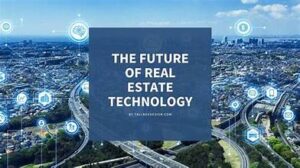
The real estate industry is experiencing a technological renaissance, thanks to the rapid evolution of Property Technology (PropTech). As we move through 2024, several groundbreaking innovations are redefining how properties are bought, sold, managed, and experienced. These advancements are not only enhancing efficiency but are also creating new opportunities and challenges in the real estate market. In this article, we explore the top PropTech innovations that are set to revolutionize the real estate sector this year.
1. Artificial Intelligence and Machine Learning
Artificial Intelligence (AI) and Machine Learning (ML) are at the forefront of PropTech innovations in 2024. These technologies are transforming how real estate professionals analyze data, predict market trends, and personalize customer experiences.
AI-Powered Property Valuation: AI algorithms can now provide highly accurate property valuations by analyzing vast amounts of data, including historical sales, market trends, and neighborhood characteristics. This reduces the reliance on traditional appraisals and speeds up the transaction process.
Chatbots and Virtual Assistants: AI-driven chatbots are enhancing customer service by providing instant responses to queries, scheduling viewings, and offering property recommendations based on user preferences. Virtual assistants, powered by AI, are also helping real estate agents manage their tasks more efficiently.
2. Blockchain Technology
Blockchain technology is gaining traction in real estate for its ability to provide transparency, security, and efficiency in transactions.
Smart Contracts: Blockchain-based smart contracts automate the execution of agreements once predefined conditions are met. This reduces the need for intermediaries, minimizes the risk of fraud, and speeds up the closing process.
Decentralized Property Platforms: Blockchain enables the creation of decentralized property platforms where buyers, sellers, and investors can transact directly without relying on traditional real estate agents or brokers. This lowers transaction costs and increases accessibility.
3. Virtual Reality (VR) and Augmented Reality (AR)
Virtual Reality and Augmented Reality are revolutionizing property viewings and marketing by offering immersive and interactive experiences.
Virtual Tours: VR technology allows potential buyers to take virtual tours of properties from the comfort of their homes. This technology provides a realistic view of the property’s layout, design, and features, making it easier for buyers to make informed decisions.
AR for Home Customization: AR applications enable users to visualize how different furniture and decor items would look in a property before making a purchase. This enhances the buying experience and helps buyers imagine themselves in the space.
4. Internet of Things (IoT)
The Internet of Things (IoT) is integrating smart devices and sensors into properties, providing enhanced convenience, security, and energy efficiency.
Smart Home Devices: IoT-enabled smart home devices, such as thermostats, lighting systems, and security cameras, are becoming increasingly popular. These devices can be controlled remotely through smartphones, offering homeowners greater control over their environment and energy consumption.
Predictive Maintenance: IoT sensors can monitor the condition of various property components, such as HVAC systems and plumbing. By analyzing data from these sensors, property managers can predict and address maintenance issues before they become major problems, reducing downtime and repair costs.
5. Big Data and Analytics
Big Data and advanced analytics are playing a crucial role in shaping real estate strategies and decision-making.
Market Insights: Big Data allows real estate professionals to analyze market trends, consumer behavior, and economic indicators on a large scale. This information helps in identifying emerging trends, making data-driven investment decisions, and targeting specific market segments.
Customer Insights: Analytics tools provide valuable insights into customer preferences and behavior. This enables real estate companies to tailor their marketing strategies, improve customer engagement, and enhance overall service quality.
6. Green Building Technologies
Sustainability is becoming a key focus in real estate, and green building technologies are leading the way in creating eco-friendly and energy-efficient properties.
Energy-Efficient Building Materials: Innovations in building materials, such as advanced insulation and energy-efficient windows, are reducing the environmental impact of new constructions and renovations. These materials contribute to lower energy consumption and reduced carbon footprints.
Renewable Energy Integration: Many new properties are incorporating renewable energy sources, such as solar panels and wind turbines, to power their operations. This not only reduces reliance on non-renewable energy but also lowers operating costs for property owners.
7. PropTech Ecosystems and Platforms
PropTech ecosystems and platforms are emerging to connect various stakeholders in the real estate industry and streamline processes.
Integrated Platforms: Comprehensive PropTech platforms are integrating multiple functionalities, such as property management, leasing, and investment analysis, into a single interface. This simplifies operations for real estate professionals and enhances collaboration among different stakeholders.
Collaborative Networks: PropTech ecosystems facilitate collaboration among real estate agents, property managers, developers, and investors. These networks enable the sharing of information, resources, and opportunities, fostering innovation and growth in the industry.
Conclusion
The PropTech innovations of 2024 are reshaping the real estate landscape by enhancing efficiency, transparency, and user experience. From AI and blockchain to VR, IoT, and green technologies, these advancements are creating new possibilities and addressing long-standing challenges in the industry. As these technologies continue to evolve, they promise to further transform the way we interact with and manage real estate.




